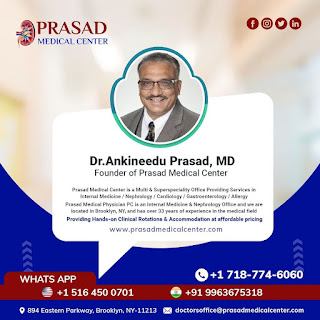Comprehensive Guide to Clinical Rotations for Nursing Students

Introduction
Welcome to our comprehensive guide on clinical rotations for nursing students.
In this detailed article, we will provide you with invaluable insights and information about clinical rotations, helping you navigate this crucial aspect of your nursing education with confidence.
Understanding Clinical Rotations
Clinical rotations are a pivotal component of nursing education.
They offer students the opportunity to apply theoretical knowledge gained in the classroom to real-world medical scenarios.
During clinical rotations, nursing students work alongside experienced healthcare professionals in various clinical settings such as hospitals, clinics, and long-term care facilities.
Benefits of Clinical Rotations
Real-World Experience
Engaging in clinical rotations provides nursing students with hands-on experience, enabling them to develop essential clinical skills.
This practical exposure helps bridge the gap between theoretical learning and actual patient care.
Skill Refinement
Clinical rotations allow students to practice and refine a wide range of skills, including patient assessment, medication administration, wound care, and effective communication.
These skills are crucial for a successful nursing career.
Interdisciplinary Collaboration
Nursing students collaborate not only with other nursing peers but also with doctors, therapists, and other healthcare professionals.
This interdisciplinary interaction enhances their understanding of holistic patient care.
How to Make the Most of Your Clinical Rotations
Be Proactive
Take the initiative to engage with your preceptors and mentors.
Don’t hesitate to ask questions, seek guidance, and express your interests.
Being proactive demonstrates your enthusiasm for learning and showcases your dedication.
Embrace Learning Opportunities
Every clinical rotation offers unique learning opportunities.
Be open to stepping out of your comfort zone and participating in various procedures and patient cases.
The more diverse your experiences, the more well-rounded a nurse you’ll become.
Develop Effective Communication
Communication is a cornerstone of nursing practice in Prasad Medical Center.
Use your clinical rotations to enhance your communication skills by interacting with patients, families, and healthcare teams.
Clear and compassionate communication contributes significantly to patient outcomes.
Reflect and Learn
After each rotation, take time to reflect on your experiences.
What did you learn?
What challenges did you face?
What could you have done differently?
Reflection fosters continuous growth and improvement.
Challenges You Might Encounter
Time Management
Balancing coursework, clinical rotations, and personal life can be challenging.
Developing strong time management skills is essential to thrive in this demanding environment.
Emotional Impact
Clinical rotations might expose you to emotionally challenging situations.
Dealing with patients’ pain and suffering can take a toll on your emotional well-being.
It’s crucial to develop healthy coping mechanisms and seek support when needed.
Adaptability
Healthcare settings are dynamic and ever-changing.
Adapting to new environments, procedures, and teams can be overwhelming. Embrace adaptability as a valuable skill in your nursing journey.
Tips for Excelling in Clinical Rotations
Dress Professionally
Wearing the appropriate attire not only demonstrates professionalism but also helps you blend in with the healthcare team.
Follow the dress code guidelines of the facility where you’re completing your rotation.
Stay Informed
Keep up-to-date with the latest medical advancements and evidence-based practices.
Being well-informed showcases your commitment to providing the best patient care.
Network
Build relationships with your peers, preceptors, and other healthcare professionals you encounter during your rotations.
Networking can open doors to valuable career opportunities.
Conclusion
Clinical rotations are a transformative phase in your nursing education.
Embrace these experiences, learn from them, and use them as stepping stones toward becoming a skilled and compassionate nurse in prasad medical center.
The knowledge, skills, and connections you gain during clinical rotations will shape your future career in nursing.
Remember, every patient interaction is a chance to make a difference.
So, put your best foot forward, be a lifelong learner, and embrace the rewarding journey of clinical rotations.
Contact Us
Address: 894 Eastern Parkway, Brooklyn, NY
11213
Phone:+1 718–774–6060
Fax:+1 718–774–4426
Office Hours
Monday — Thursday: 9 AM to 7 PM
Friday: 8 AM — 2 PM
First Saturday: 8 AM to 2 PM
Appointment Hours
Dr. Ankineedu N. Prasad, MD FACP FASN
Ms. Florence B. Ajayi-Barnes, FNP
Internal Medicine & Nephrology
Mon, Wed & Thursday: 1 PM — 6.00 PM
Tuesday: 12.30 PM — 6.00 PM
Friday: 8 AM — 1 PM
First Saturday: 8 AM to 1 PM


Comments
Post a Comment